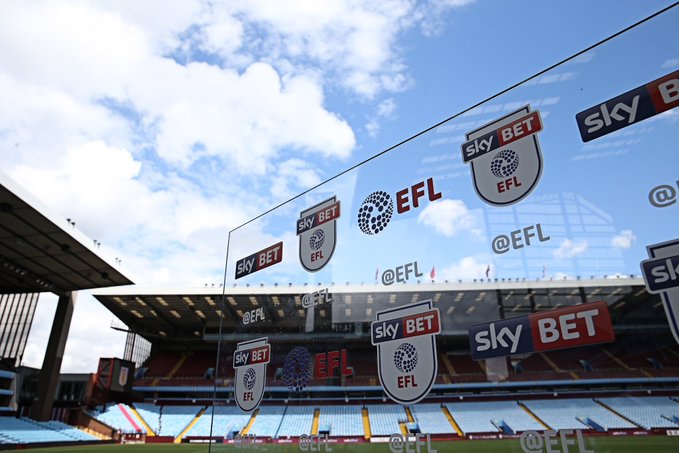League One and League Two clubs vote to introduce salary caps effective immediately
In a landmark decision, clubs in the League One and League Two of the English Football League (EFL) have voted to introduce salary caps of £2.5 and £1.5 million respectively. The EFL have been looking into ways to help curb the financial issues with the Championship also set to vote on the same.

After months and weeks of speculation, a statement from the English Football League (EFL) has confirmed that the League One and League Two are set to introduce salary caps. This decision comes after months of planning and rumours with the EFL looking to try and help curb the financial issues that many lower league clubs face. That applied especially after the impact of the coronavirus and after an EGM, clubs within the League Two and League One voted to enforce salary caps.
Each club in the League One will have a fixed cap of £2.5million, while League Two clubs will have a cap of £1.5million. It includes everything from “basic wages and taxes to image rights, agent fees and any expense paid to players”. The statement from the EFL also confirmed that a “financial penalty would be payable for every £1 in excess” but the club can overrun the cap by 5% although an “Independent Disciplinary Commission” will assess the situation then.
“The term ‘salary cap’ is an emotive one, creating the impression of a restrictive measure but we are clear in our view that this is neither the objective nor the likely effect of these changes to EFL Regulations. The financial impact of Covid-19 will be profound for EFL Clubs and today’s vote will help ensure Clubs cannot extend themselves to the point that could cause financial instability,” revealed EFL CEO David Baldwin on the EFL’s official website.
“Over the last two weeks the discussions amongst Clubs in both Leagues One and Two have been healthy and constructive, allowing us to reach a clear consensus today and I am pleased that the Clubs have determined to adopt the new approach. We will now work with all Clubs, the PFA and, where appropriate, other stakeholders to implement the new rules and continue our efforts to bring long-term sustainability to the EFL.”
While the League One and Two have voted on the salary caps, reports have indicated that the Championship sides also met in July over the same vote. While there has been no news, as of yet, there is a chance that the English second tier implements the same although the Premier League has had no meetings as of yet. Furthermore, the Professional Footballers' Association (PFA) has released a statement that has revealed that the body is against the cap as they believe it has been rushed through “without proper consideration”.
"The report has raised concerns that the proposed cap is being rushed through, without proper consideration or consultation. Like everyone involved in football, we want to see sustainable clubs at all levels. We absolutely understand and appreciate the huge economic pressure that clubs have come under due to the COVID-19 crisis. However, we have significant reservations about the measures being proposed and the speed at which these are being implemented," reads the PFA's statement, reported Sky Sports.
"The introduction of a salary cap in English football represents a seismic change. It is a change that will have far-reaching and significant impacts right across the professional game. We must take the time to ensure that these are properly considered and understood. We have been surprised and disappointed at the level of consultation and engagement around these proposals so far. It is, undoubtedly, in the best interests of the clubs, the leagues and the players that we work together on this important issue.
"Today, we have invited the EFL to a period of expedited arbitration in August, before the next season starts and the transfer window closes, in order to reach a shared agreement on the way forward. The EFL has a legal obligation to consult with the PFA and the Professional Football Negotiating and Consultative Committee (PFNCC), over any potential changes to a player's conditions," it further added.
EFL Statement: 'Squad Salary Caps' introduced in @SkyBetLeagueOne and @SkyBetLeagueTwo.#EFL https://t.co/MMQUp72rtE
— EFL Communications (@EFL_Comms) August 7, 2020

Comments
Sign up or log in to your account to leave comments and reactions
0 Comments